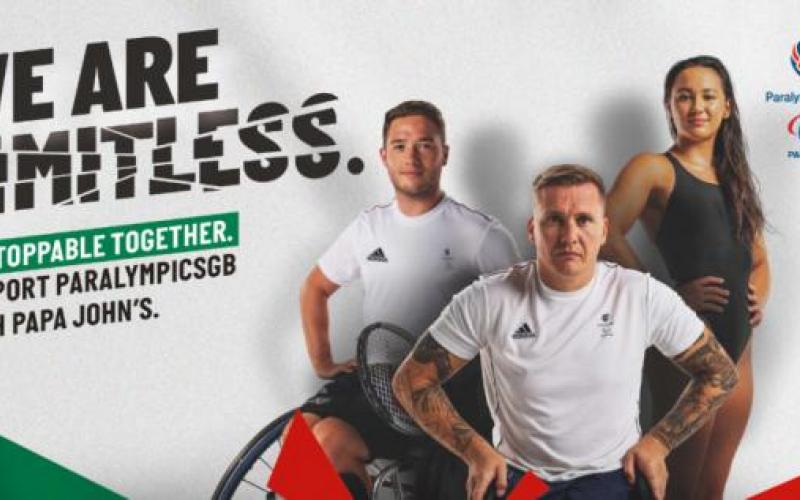How to avoid the dreaded sponsor inactivity

The immediate attraction of sponsorship is that it could be beneficial to your business. However, it requires the sponsor to invest a potentially large sum of money in order to reap those rewards. So why should an organisation go to that effort?
Primarily, sponsoring a project, event or organisation allows your business to increase its reach. This is the main aim – to make even more people conscious of who you are, what you do, and what you can do for them. There are, of course, a range of other marketing techniques you could employ to achieve these aims, but sponsorship allows your brand to be placed in front of a ready (and potentially wide) audience that is matched to your needs and more receptive to communication. Sponsorship isn’t immediately identified as a marketing technique as it doesn’t involve the hard sell. The softer approach you can employ with this method of marketing means that people might be more open to interacting with you as they won’t necessarily feel that they are being pressured or even sold anything at all. Sponsorship is a more effective approach to marketing efforts.
By your brand being associated with something that is current and relevant, the effectiveness of your marketing efforts may increase due to the rights holder’s work being a hot topic of present conversation. A local occasion, such as a fete or a sporting event, will be advertised around the area in advance and attended by residents from the community, hence there will be discussion surrounding it. If you are linked to such an event, your brand name will be dropped into conversation on a much more regular basis than it has been before. It’s this increase in awareness that no other form of marketing can give you quite so effectively.
Not only will you be talked about more often and by a wider audience, you are also more likely to be discussed in a positive light. By being associated with a local cause or charity, or by supporting an event or project in need of backing, public perception of you will improve and people will be more intrigued by what you do – and more likely to have that translate into direct interaction with you.
Despite sponsorship being a deal that is worth doing more often than not, there are some reasons for not proceeding. Primarily, you need to understand exactly what the agreement would contribute to your marketing efforts and how you would stand to benefit. If you feel that you want to be a sponsor because it is the thing you are ‘supposed’ to do, but you cannot communicate to others why you think that way and what it will do for your brand, this is a reason to resist. You may wish to proceed purely for reasons of social responsibility, which is admirable and will still leave you with a more positive public image and the subsequent benefits that may bring. Otherwise, you should know what you hope to achieve for your business before you enter such an agreement and have some specific goals and objectives.
What do you want out of a sponsorship deal?
Before you invest in sponsorship as an aid or change to your existing marketing efforts, you should know exactly what you are hoping to achieve by doing so. While rights holders may approach you with their own ideas of what they can offer your business as part of a sponsorship deal, you should remember that this is a partnership. You are entitled to have your own aims and should expect them to be acknowledged as part of the deal. So before you enter discussions, know – and be prepared to explain – what it is you are looking for.
How might sponsorship fit in with the goals you have for your business? You might be hoping to increase your reach and boost your income, which are the most understandable aims, but try and be as specific as you can. Think about how you will measure whether your goals have been met. Will you analyse customer feedback or track your income? Will you measure website hits, perhaps? While figuring out what you are looking for from a sponsorship agreement, don’t forget to manage your expectations – you can decide on the level of financial investment you are prepared to make in line with this. A one-off deal in which you sponsor a local event is unlikely to boost your brand to such an extent that it is propelled onto a national scale. However, you may expect a growth in sales that is proportionate to your status.
Once again, bear in mind that a sponsorship agreement is exactly that – both parties should agree on the joint aims of the relationship and commit to making the effort to achieve them.
Choose your sponsorship opportunity
You may be about to invest a substantial amount of money into a project you currently know little about, so it would be wise to take your time, do your research and know which kind of opportunities you would be most suited to taking advantage of. The rights holder in the agreement will ideally share your values so the relationship will make more sense to an outside audience. For example, if you are a sportswear brand or you provide athletes with nutritional supplements, a sporting event in the locality would be the most obvious choice for you to partner with. Not only are you both in the same industry, but the event will put your business in front of an audience that is relevant and already receptive to what you have to offer.
Think about the rights holder and what it can offer your brand, as well as, who is involved in this particular event or organisation. As part of your research, it is crucial to start building relationships and getting to know the people you may find yourself working with. Are they professional relationships you believe you could maintain? You should understand how you work, how the potential rights holder works, and whether the two are compatible.
While this may be an afterthought, it might also be worth considering the perks you are being offered in the agreement. Are there any added extras to make the investment that much sweeter, such as invitations to exclusive events? While these aren’t compulsory, the lengths to which the rights holder is prepared to go to secure the relationship will be an indication of the amount of effort they are likely to put in to make your investment work for you.
What is the cost?
Sponsorship deals can vary greatly in cost. A one-off investment into an event may be £500, or you might be in a position to enter a longer-term, more high-profile contract that requires an investment from you of upwards of £10,000. Think about big-name sporting sponsorships that you hear about in the media, such as those involving sporting events and large corporations (e.g. Coca-Cola and the Olympic Games). You may not be working at that scale yourself, but it is wise to know how much you can afford – and are prepared – to invest and what you can reasonably expect in return.
When entering an agreement, be sure to thoroughly discuss the level of investment that is expected of you, to what you will have access, and the duration of the deal. It is obviously imperative that you are happy with what is laid out, and ensure that you air your concerns about it if necessary.
While discussing cost, bear in mind that the cheapest deal is not always the one that offers best value. This is why it is important to know what you can afford to invest and what you are hoping to achieve in exchange, as well as, finding a deal that achieves your goals. While considering this, bear in mind the potentially long-term nature of a sponsorship deal. You may start off investing a small amount, but as time passes and your relationship with the rights holder develops, you may find that it makes sense to extend the agreement and transition to a higher level of investment and a greater expected return.
On another note, be sure to weigh up the amount of investment versus the cost of its implementation/activation before you see a return. What will be the rights holder’s expenditure? Think about branding, design, and copywriting, for instance. Also, if you are to be promoted at networking events, what will be the price of hosting such events? These should also be factored into the equation.
What returns should you expect?
Before your agreement commences, ensure you and the rights holder have a plan in place for getting a sufficient return on your investment. If this is done in the earliest stages, you have an expected standard by which you can measure your outcomes.
As we have already mentioned, it would pay for you to manage your expectations in this process. You should understand that your return on investment will be proportionate to the amount of work you put into the relationship, as well as how effective the sponsorship activation is. Sponsorship is but one element of your marketing strategy, and you should try to integrate it into the other techniques you employ.
In line with this, it would be worth minimising the risk of an individual investment by creating a portfolio of sponsorship opportunities rather than focusing all of your efforts on just one deal.
Evaluate the success of your investment
Ensure that you stay involved and regularly check the progress of your sponsorship investments. Have constant contact with your sponsorship partner. They may not necessarily be successful, and if not, it is important that you analyse why. Understanding what works and what doesn’t will enable you to choose more wisely when it comes to investing in the future. Perhaps one of your opportunities isn’t putting you in front of a relevant audience. If you are not satisfied with the outcomes you are seeing, take the time to assess what has fallen short of expectations and the cause of this.
Be sure to scrutinise your other marketing efforts, too. Are you making the most of your sponsorship deal and integrating it into your overall marketing plan effectively?
Conclusion
Sponsorship can be an invaluable asset to your bag of marketing tricks. If you are looking to increase your audience share, maintain a positive public image, and boost revenue, it would be worth your while to consider making the investment. And don’t forget to look at it exactly like that – as an investment. It may feel like a substantial financial output, but consider it a venture that is going to pay dividends for your brand in the long run.
You may also like
-

- Sponsorship Industry News
The Rise of Hyperlocal Marketing – Rebuilding Society
Not only has a new agency been formed during the most difficult of times but there was also an acknowledgement of Hyperlocal Marketing.
-

- Sponsorship Industry News
PepsiCo agree five-year sponsorship of UEFA women’s competitions
PepsiCo has signed a new five-year partnership with UEFA to sponsor its women’s football competitions, UEFA Women's Champions League and the UEFA Women's EURO.
-

- Sponsorship Industry News
Paralympics GB partners with Papa John’s ahead of Tokyo 2020
Papa John’s have teamed with Paralympics GB ahead of the rescheduled Tokyo 2020 Paralympic Games as they aim to raise £250,000 between the pizza chain's staff and customers




